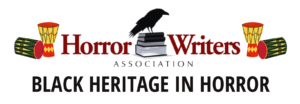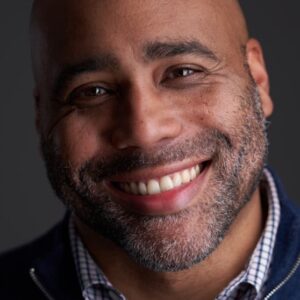
What inspired you to start writing?
I got started in fourth or fifth grade and had some teachers encourage me as I got older, letting me know in one way or another that I was good enough to get better at it and that I just wasn’t trying hard enough. I didn’t pursue it in earnest until my largely fruitless first year of college when I spent more time in the computer lab working on a fantasy script idea than studying.
What was it about the horror genre that drew you to it?
When I was five-years-old my kindergarten teacher, Mrs. Nina, played the ghost story “The Golden Arm” on a record for the class. They probably don’t allow that sort of thing in kindergartens anymore, even down in Mississippi, where I was at the time. Anyway, I immediately fell in love with ghost stories at that early age, even though they scared the hell out of me. I think reading the anthology Shudders edited by Ross R. Olney when I was in second or third grade and being greeted by the Robert Bloch short story “Sweets to the Sweet” right away, with its brutally shocking ending, might have cemented it for me. Since then, I’ve loved Halloween, creepy legends, alleged hauntings, and anything else within or surrounding the world of horror fiction.
Do you make a conscious effort to include African diaspora characters and themes in your writing and if so, what do you want to portray?
I do. I want to portray a range of things. My first goal is always to just create a good, compelling character, and then try to capture their perspective honestly, without pressuring myself to make the characters I’m working with all things to all people. That said, I try to accept the responsibility of exploring themes and issues that fit.
What has writing horror taught you about the world and yourself?
One thing that I’ve long believed and that I feel I’m learning more and more as I write horror and talk about writing it with other people is that the world, by and large, loves horror stories, and is also still in pretty strong denial about that love. Every culture has horror stories, horror elements pop up in popular love stories, adventure stories, and, of course, children’s stories, and more. But people hear the word “horror” and will refuse to consider that what they enjoy might have several hallmarks of horror fiction. It’s fascinating to me.
How have you seen the horror genre change over the years? And how do you think it will continue to evolve?
Broadly, I think there’s a greater sense of sincerity top-to-bottom in the genre than when I first fell in love with it in the mid-80s through the early 90s. I’m adding a lot of qualifiers because I don’t want to be dismissive of the sincere works that existed in those years. I also don’t want to make it sound like every story has to be serious and earnest or else it’s no good. But when I was growing up, I felt like a lot of horror was treated as a joke even by some creative people involved with the genre—much more on the movie-making side than the writing side, to be fair. And, again, that wasn’t applicable to everything, by any means, and it’s a good thing to have some more playful or even comedic horror stories, but there was a point where it seemed like more people than not, didn’t think the genre was worthy of serious storytelling.
Even the popular and influential horror works that did examine important topics, or had serious moments, were reduced to what people found more laughable. When I was young, Kubrick’s adaptation of The Shining seemed far more famous for the “Here’s Johnny” moment than for anything else it had to say. Fast forward to Scream in 1996, which revitalized the genre in cinemas, and people typically overlook its more serious, sincere moments, like the horrific nature of Casey Becker’s dying while her parents listen over the phone. People think of that scene as strictly a send-up of the slasher genre when it features one of the most heartbreaking moments in horror cinema, the kind of thing that Hereditary very effectively built its entire story around (interestingly, things have come around so much that Hereditary’s deliberate humor was lost on some people when it was first released because they were focused so much on the seriousness).
How do you feel the Black community has been represented thus far in the genre and what hopes do you have for representation in the genre going forward?
Like in many other genres, we’ve been underrepresented. The trope of the Black character dying first is overstated almost to the point of inaccuracy, yet the idea that it feels true just speaks to how invisible or unmemorable Black characters have been in horror fiction.
That said, we’ve had Octavia Butler, Tananarive Due, Brandon Massey, Wrath James White, Maurice Broaddus, and many others present for years, paving the path. I’m always wary of focusing so much on our underrepresentation that I fail to acknowledge and say thank you to the people who’ve been here, doing the work, winning accolades, and scaring the hell out of people. My hope going forward is that we continue to showcase our talents and tell the stories we’re destined to tell.
Who are some of your favorite Black characters in horror?
I was psychologically tormented by Candyman before even seeing the film, just from the commercials, so the movie and the title character will always be my favorite. Shori, from Fledgling, and Iraxi from Zin E. Rocklyn’s Flowers for the Sea also rank highly with me.
Who are some African diaspora horror authors you recommend to our audience check out?
The aforementioned White, Due, and Broaddus probably need no “recommendation” from me, but I’ll feel odd not mentioning them, so here they are, and the same applies to Linda Addison, Victor LaValle, and Octavia Butler. Zin E. Rocklyn, Helen Oyeyemi, Sheree Thomas, Tonia Ransom, Erin E. Adams, L. Marie Wood, Ness Brown, Steven Van Patten, Marc L. Abbott, and R.J. Joseph. These are just some that I can think of that I’ve read.
Others that I’m looking forward to getting to include are Denise Tapscott, Kirk A. Johnson, C.C. Adams, and Michelle Renee Lane— so many more, as well.
We’re out here.
What is one piece of advice you would give horror authors today?
Oh hell, I don’t know that I’m in a position to give other horror authors advice. I’ll just say what’s been on my mind most recently: there’s a lot of value in just trying to make something incredibly scary. “Scary” is, of course, highly subjective, so I understand why writers (as well as readers/reviewers) might focus more on the value of themes and issues because even when these are unique and/or timely, they still tend to be more universal and/or relatable than what some may or may not consider “scary.” And these are important storytelling components, of course. But I think having great scares might be a little underrated at this point, at least when discussing what earns a work high praise. A lot of skill and thought goes into the art of a great scare, and you’re always navigating the challenge that some things that would be terrifying in real life might not be scary (or might even come across as humorous, to some people) on the page. If you can write something with multiple memorable scares, or something that feels like a tremendous scare from beginning to end, I think you’re doing as much justice as anyone else to our beloved horror genre.
And to the Black writers out there who are just getting started, what advice would you give them?
You don’t have to tell every Black person’s story all at once. I think that pressure is present with us, especially when we’re getting started (I know I felt it at times). You can’t try to account for the entire Black experience. Odds are you can’t even account for the entirety of your own experience as a Black person. Tell the story you can tell, as well as you can. Seems simple, and I hope it is for you, but it can become considerably more complicated, to our detriment at times.
And don’t let anyone who isn’t Black try to tell you how Black they think your story needs to be. I’ve encountered that a few times, and dismissing that feedback has, so far, worked out for me.
 Bio:
Bio:
JOHNNY COMPTON’s short stories have appeared in Pseudopod, Strange Horizons, The No Sleep Podcast, and many other markets. He is an HWA member. A creator and host of the podcast Healthy Fears. He is the author of The Spite House.

